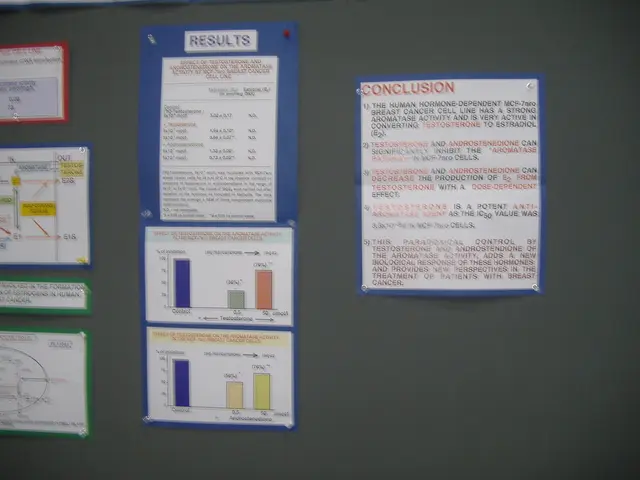Pregnancy-induced vomiting: Root causes and remedies
Morning sickness, a common symptom of pregnancy, affects around 70% of women during the first trimester. However, for 3 in 100 pregnancies, the sickness can escalate into a more severe condition known as hyperemesis gravidarum (HG). This article aims to shed light on HG, its symptoms, causes, treatments, and precautions for pregnant women.
**Symptoms**
Hyperemesis gravidarum is characterized by severe and persistent nausea and vomiting that occurs several times a day, often after every meal. The symptoms can lead to dehydration, weight loss, and in rare cases, electrolyte imbalances and malnutrition-related complications. Symptoms usually manifest primarily in early pregnancy, typically between weeks 7 and 12.
**Causes**
The exact cause of HG is not fully understood, but it is primarily physiological, linked to high levels of the hormone beta human chorionic gonadotrophin (BHCG) during early pregnancy, which can also transiently cause hyperthyroidism. Higher BHCG levels occur in conditions such as multiple pregnancies and molar pregnancies. Psychological factors may influence the severity but are not the primary cause.
**Risk Factors**
Risk factors include a personal or family history of HG, motion sickness, or migraines. Pregnant women carrying twins or triplets are also more likely to experience severe symptoms of morning sickness.
**Treatments**
Early and effective treatment is crucial to avoid complications from malnutrition and dehydration, which can have long-term consequences for both mother and child. Medical assessment is essential to rule out other causes and to confirm HG.
Antiemetic (anti-nausea) drugs such as a combination of doxylamine and pyridoxine (vitamin B6) are commonly used and safe in pregnancy. Other anti-sickness medications may be prescribed under medical supervision. Intravenous fluids may be administered to treat or prevent dehydration, and nutritional support may be needed if oral intake is insufficient.
Alternative therapies such as acupuncture could be considered, but it is best to choose a practitioner who has trained to work with pregnant women. Psychological support should also be considered because the condition can severely impact quality of life and mental health.
**Prevention**
To minimise the risk of food poisoning, pregnant women should avoid unwashed fruits and vegetables, raw or undercooked eggs, unpasteurised milk, unpasteurised cheese, and raw fish. Eating small meals several times a day, avoiding smells that set off nausea, taking prenatal vitamins, sipping on water or ginger ale, drinking fluids often, consuming ginger or using supplements, and eating plain crackers or dry toast can help reduce the chance of vomiting during pregnancy.
In conclusion, hyperemesis gravidarum is a severe form of nausea and vomiting that occurs in pregnancy. Women experiencing severe ongoing vomiting with dehydration, weight loss, or inability to eat or drink should seek prompt medical care, as HG requires active management to protect maternal and fetal health. It is essential for pregnant women to be aware of the symptoms and risk factors associated with HG to ensure timely treatment and care.
- In the context of pregnancy, hyperemesis gravidarum (HG), a more severe form of morning sickness, can lead to food poisoning due to dehydration and malnutrition.
- Science is still working to understand the exact causes of HG, but high levels of beta human chorionic gonadotrophin (BHCG) during early pregnancy are believed to play a role, potentially leading to temporary hyperthyroidism.
- Pregnant women should be mindful of their food choices, aiming to avoid raw or undercooked foods known to cause food poisoning, such as unwashed produce, raw eggs, unpasteurized milk, unpasteurized cheese, and raw fish.
- While Paxlovid and Pfizer are primarily known for their COVID-19 therapies, antiemetic drugs such as a combination of doxylamine and pyridoxine (vitamin B6) are safe and often used during pregnancy to alleviate symptoms of HG.
- Treatment for HG can involve a range of strategies, including anti-nausea medications, intravenous fluids, nutritional support, acupuncture, psychological support, and various alternative therapies and treatments for women's health.
- The symptoms of HG, such as persistent nausea and vomiting, can impact not just physical health but also mental health, highlighting the importance of holistic therapies and treatments for mental health when managing HG.
- Regarding retargeting, it's important to remember that this marketing technique is not applicable in the context of this article, focused on pregnancy-related health matters, such as hyperemesis gravidarum.
- Beyond HG, pregnancy can bring about an array of health concerns, emphasizing the importance of comprehensive health-and-wellness education, covering topics like food and food benefits, sickness prevention, and various therapies and treatments related to women's health.




